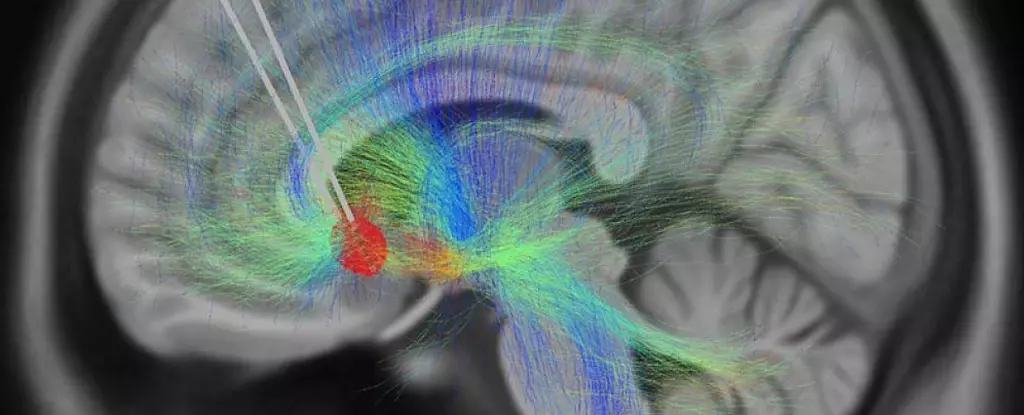Depression is a debilitating mental health condition affecting millions of people worldwide. Traditional treatment methods for depression often involve a trial-and-error approach, as there is no objective way to measure the effectiveness of interventions. However, a recent study has demonstrated the potential for a groundbreaking change in depression treatment using artificial intelligence (AI) and deep brain stimulation (DBS) therapy. By leveraging AI analysis and electrode implants, researchers have successfully identified a biomarker linked to recovery from depression, allowing clinicians to make data-driven adjustments to treatment plans.
Treating depression has long been a complex challenge in the field of mental health. Currently, clinicians heavily rely on self-reporting by patients to gauge their mood and track progress. However, this approach is inherently subjective and can be influenced by external factors such as stressful life events. As a result, accurately pinpointing the therapeutic effects of interventions like DBS has been a significant hurdle.
The Promise of Deep Brain Stimulation and Artificial Intelligence
Deep brain stimulation therapy has shown promise in the treatment of depression, but its success heavily relies on stimulating the correct brain tissue. To address the limitations of self-reporting, scientists from the Georgia Institute of Technology, the Emory University School of Medicine, and the Icahn School of Medicine at Mount Sinai employed AI analysis and electrode implants. This combination allowed them to identify a brain signal, serving as a biomarker for recovery from depression, with an accuracy rate exceeding 90%.
The AI used in the study was trained using brain images taken at the beginning and end of the DBS therapy. With the assistance of AI algorithms, researchers were able to detect neurological differences that may have been overlooked by human observers. This innovative approach enabled the identification of a recovery signal that provides invaluable insights into the effectiveness of the treatment. By having a data-driven indicator, clinicians can objectively evaluate when DBS is working and when adjustments need to be made.
In the study, nine out of ten patients showed significant improvement in their depressive symptoms, highlighting the effectiveness of the DBS therapy guided by the AI-informed recovery signal. As the AI continues to be refined and trained on larger datasets, it holds the potential to revolutionize the way depression is monitored and treated. By providing objective neurological signals, clinicians can tailor interventions to individual patients, leading to more personalized and effective treatment plans.
While the study demonstrates the transformative potential of AI and DBS therapy in depression treatment, there are still challenges to overcome. Notably, the procedure involves the implantation of electrodes in the brain, which may be a deterrent for some individuals. Researchers must also conduct further studies to validate the findings and refine the AI algorithms. However, these initial results offer hope for individuals with treatment-resistant depression, paving the way for a more informed and targeted approach to mental health interventions.
The integration of AI analysis and deep brain stimulation therapy marks a significant advancement in the field of depression treatment. By harnessing the power of AI, clinicians can now rely on objective neurological signals to monitor the effectiveness of interventions. The identification of a biomarker for recovery from depression provides a much-needed objective measure, reducing the reliance on subjective self-reporting. As research progresses, the potential for tailored treatment plans and improved patient outcomes becomes increasingly evident. While challenges remain, the future of depression treatment looks brighter with the fusion of AI and DBS therapy.


Leave a Reply